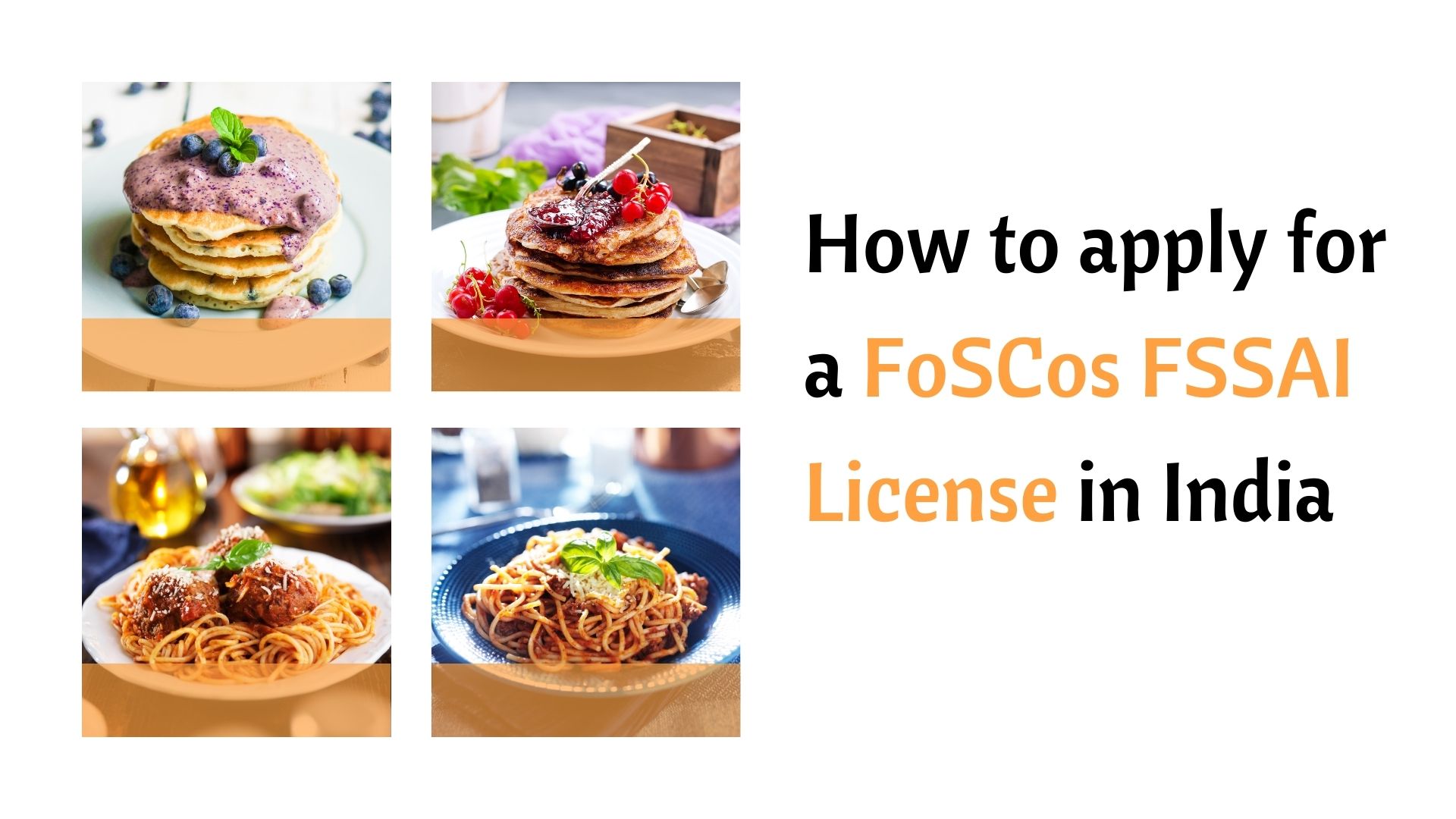In India, the food industry is a vital sector that
encompasses various businesses, from small-scale vendors to large-scale
manufacturers. Ensuring food safety and quality is crucial, and this is where
the Food Safety and Standards Authority of India (FSSAI) steps in. The FSSAI
oversees and regulates the food industry, requiring businesses to obtain an
FSSAI license. The introduction of the Food Safety Compliance System (FoSCoS)
has streamlined this process, making it more efficient and user-friendly. This
article will guide you through the steps to obtain a FoSCoS FSSAI license in
India.
Understanding FoSCoS and FSSAI
The FSSAI is an autonomous body established under the
Ministry of Health & Family Welfare, Government of India. Its primary
responsibility is to ensure that food products are safe for consumption. The
FSSAI license is mandatory for all food business operators (FBOs) in India,
which includes manufacturers, traders, restaurants, and even small-scale food
vendors.
FoSCoS, launched in 2020, is a modernized online system
replacing the older Food Licensing and Registration System (FLRS). It is
designed to simplify the process of obtaining and managing FSSAI licenses,
offering a more seamless experience for FBOs.
Types of FSSAI Licenses
There are
three types of FSSAI licenses:
1. Basic Registration: For small businesses with an annual
turnover of up to ?12 lakhs.
2. State License: For medium-sized businesses with an annual
turnover between ?12 lakhs and ?20 crores.
3. Central License: For large businesses with an annual
turnover above ?20 crores, or those operating in multiple states, or involved
in import/export activities.
Steps to Obtain a FoSCoS FSSAI License
1. Determine the Type of License
Before applying, you need to determine which type of license
is appropriate for your business. This depends on your business's annual
turnover and the scale of operations. Knowing the correct type of license will
streamline the application process.
2. Register on the FoSCoS Portal
Visit the FoSCoS website (https://foscos.fssai.gov.in) and
create an account. You will need to provide basic information such as your
name, email address, and mobile number. Once registered, you will receive login
credentials to access the portal.
3. Fill Out the Application Form
After logging in, select the type of license you need (Basic
Registration, State License, or Central License). The application form will
require detailed information about your business, including:
- Business name and address
- Contact details
- Types of food products handled
- Business category (manufacturer, trader, restaurant, etc.)
- Annual turnover
- Production capacity (for manufacturers)
Ensure that all information provided is accurate and complete
to avoid delays in processing your application.
4. Upload Required Documents
The FoSCoS portal will prompt you to upload various documents
to support your application. Commonly required documents include:
- Proof of identity (e.g., Aadhaar card, PAN card)
- Proof of business address (e.g., utility bill, rent
agreement)
- List of food products manufactured or processed
- Plan of the processing unit (for manufacturers)
- NOC from the local municipality or Panchayat
- Form IX: Nomination of persons by the company
Make sure all documents are clear and legible. Scanned copies
should be in the prescribed format and size as specified on the portal.
5. Pay the Application Fee
The application fee varies depending on the type of license
and the tenure for which you are applying. Fees can be paid online through
various modes such as credit/debit card, net banking, or e-wallets. The portal
provides a fee calculator to help you determine the exact amount.
6. Submit the Application
Review your application thoroughly before submission to
ensure all details are correct and all documents are uploaded. Once you are
satisfied, submit the application. You will receive an acknowledgment receipt
with an application reference number. This is the process where can be used to
track the status of your application.
Post-Submission Process
7. Inspection
After submitting your application, the FSSAI may conduct an
inspection of your premises. This is typically done for State and Central
licenses. The inspection ensures that your business complies with food safety
standards. Be prepared to demonstrate your food safety management system and
answer any questions from the inspector.
8. Review
and Approval
The FSSAI authorities will review your application and the
inspection report. If everything is in order, your license will be approved.
You will receive a notification via email and can download the license from the
FoSCoS portal.
9. License Validity and Renewal
The FSSAI license is typically valid for 1 to 5 years, depending
on the tenure you selected during application. It is crucial to renew your
license before it expires. The renewal process is similar to the initial
application and can also be done through the FoSCoS portal.
Tips for a Smooth Application Process
- Accuracy: Ensure all details in your application are
accurate to avoid rejection.
- Documentation: Keep all required documents ready and
in the prescribed format.
- Timeliness: Apply for renewal well before your current
license expires.
- Compliance: Maintain compliance with FSSAI standards
at all times to avoid penalties.
Conclusion
Obtaining a FoSCoS FSSAI license is a crucial step for any
food business in India. It not only ensures compliance with the law but also
builds trust with consumers by guaranteeing the safety and quality of your food
products. By following the steps outlined in this guide, you can navigate the
application process smoothly and efficiently, allowing you to focus on what you
do best providing safe and delicious food to your customers.

